There are many disenfranchised Native Americans who can't meet tribal membership requirements. In addition, there are many people who have some degree of Native ancestry but do not meet the requirements for tribal enrollment.
Tribal membership is an important formal recognition of personal heritage. For many, it’s a matter of identity, community, and acceptance.
Likewise, becoming a recognized tribe member opens the door to tribal and government support.
Health care, housing, education, and food, among others, all become available. Such assistance is a lifeline for many families around the US.
Unfortunately, the process of gaining tribe membership can be far from straightforward. A host of obstacles frequently present themselves.
Are you wondering why tribal membership is such a tough process for Native Americans?
Keep reading to discover the predominating obstacles standing in the way.
Why Tribal Membership is Such a Tough Process for Native Americans
1. No Blanket Rules
One of the primary obstacles to tribe membership is a lack of universal rules and requirements.
There’s no one set of rules for gaining membership.
Instead, differences can be found at federal, state, and tribal levels. For example, some tribes are recognized at a state, but not a federal level. Some tribes require you to meet for an interview with the tribe leader. Others don’t.
The process and requirements for one tribe may be entirely different from another.
For example, the Walker River Paiute tribe requires at least one-half blood quantum. The Navajo only ask for one-fourth (learn more about blood quantum definition).
This absence of a standardized process serves to complicate matters.
It’s essential to work out your requirements for your particular tribe. What worked for a friend may not work for you. Making mistakes along the way is a sure-fire means of prolonging the process.
As an aside, depending on your situation, you may be eligible to apply to multiple tribes. At that point, a decision must be made as to the right one for you.
Related Info – Step By Step Guide To Tracing Your Family History
2. Different Blood Quantum Requirements
Blood quantum is often a deciding factor when it comes to tribal regulations.
It’s also a hotly contested issue amongst tribal communities. Defining someone’s identity by the percentage of blood contains a host of moral and ethical implications. That’s especially true when it can open or close the door to tribal recognition.
Regardless, for now, blood quantum remains a relevant metric in determining tribal membership.
You might be wondering what it means.
Well, the term refers to the proportion of someone’s genetic makeup that’s native by blood. The higher the figure, the more native blood running through someone’s veins.
It’s calculated by looking backward at native family connections. For example, having one full-blooded grandparent would make you ¼ Native American.
Blood quantum is one of the primary differences between tribal entry requirements.
The level of relation to a tribe is key. The majority of tribes stipulate at least ¼ blood quantum to be eligible. Others, like the Eastern Band of Cherokee Indians, have a 1/16 quantum requirement.
Some require 1/8 and 1/32. Others have no minimum. Instead, it’s based on personal identification and ancestral links to the tribe.
Read more about calculating Blood Quantum.
3. Certificate of Degree of Indian Blood
Native Americans also require a certificate from the Bureau of Indian Affairs (BIA).
Known as a Certificate of Degree of Indian Blood (often known as a CDIB), it’s a card that details your degree of blood quantum. Only with this in hand can you apply for entry to one of the federally recognized tribes.
The BIA is the government body that allocates the card. However, the decision rests with the tribe itself. Each one will have its particular ordinances that stipulate its requirements.
Again, the CDIB is another contentious issue in the debate on Native identity. No other ethnic community in the US is required to have a certificate that proves their lineage.
Many argue the discriminatory nature of the practice. That’s especially true given the role of this certificate in accessing a tribe and particular benefits.
4. Prove Direct Lineage
To become a tribe member you need to prove your connection to it.
That means going back through history to find evidence of your heritage.
Family tribal records are often the best way to do this. From birth certificates, marriage and death certificates, old school records…They often hold the proof you need.
Internet research can also play a role. Many websites and databases provide extensive genealogical records. Accessing these can be a straightforward means of proving a connection to a tribe.
Many people wonder if a DNA test would suffice.
The answer to the query is generally ‘no’. On rare occasions, the results of these tests may be permitted as evidence. However, more often, someone must show their connection through direct records.
5. Ongoing Contact with the Tribe
Here’s another quick obstacle that can pose a problem:
Another requirement many tribes have is continued contact with it.
Can you demonstrate a history of contact with a tribe? If so, then you stand a better chance of being allowed access to it. After all, ongoing contact shows an affinity and genuine interest that cultivates trust.
Imagine a long-lost relative of yours getting in touch out of nowhere. What would your response be if they asked to be part of your family?
Chances are you wouldn't accept. After all, you don't know them, nor understand their intentions.
But imagine they'd kept a steady stream of communications throughout your life. Their request to become a larger part of it may be met with greater interest.
It's a similar situation regarding the utility of having continued contact with the tribe.
Lack of communication with a tribe doesn't necessarily prevent membership. Similarly, not all tribes require it. However, it will be an undeniable advantage if you've kept in contact with them.
Be sure to detail current or historic contact in your application.
6. Length of the Process
One outcome of each aforementioned obstacle?
Time.
These days, we’re used to applying for something online and being improved in moments. Online courses, group memberships, magazine subscriptions, and so on allow near-instant access.
That, as you may have already guessed, isn’t the case with tribal membership. Every step along the way takes time and effort.
As we’ve seen, you must acquire the necessary information to prove lineage. You have to contact relatives, conduct online research, and find the forms. Then you must apply for membership, complete the forms, and (sometimes) meet with tribal leaders.
Time is the primary factor. Becoming a formally recognized tribe member is no simple feat.
Final Thoughts on Tribal Membership
There you have it: exactly why tribal membership can be a difficult process.
The number of Native Americans in the US pales in comparison to the overall population. Identity and belonging to a tribe become intensely personal and precious.
However, as we’ve seen, the route toward membership isn’t easy. Hopefully, this post has demonstrated exactly why that’s the case.
Looking for more information on Native American genealogy? Click here for all of our articles on the subject!
Last Updated on January 5, 2024 by Paul G
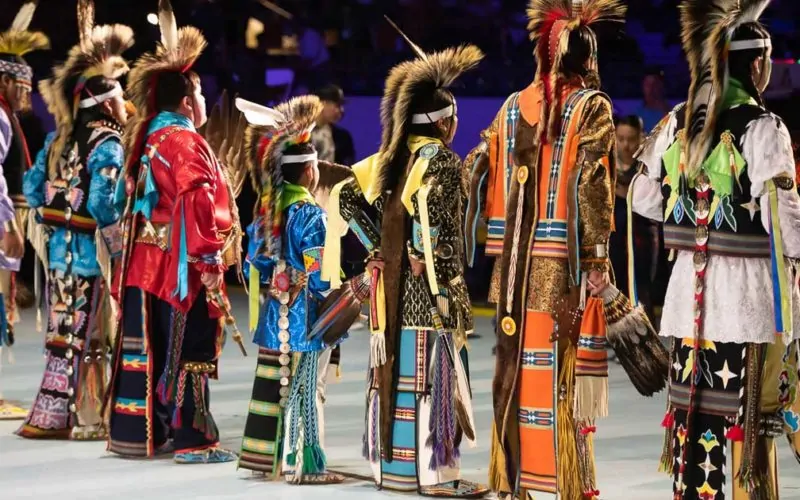
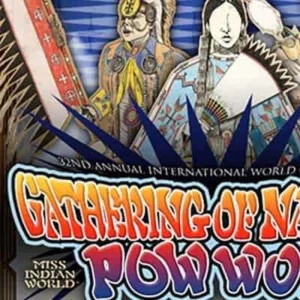
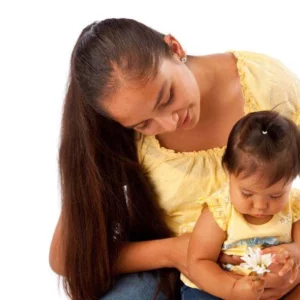
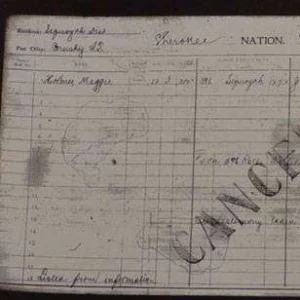
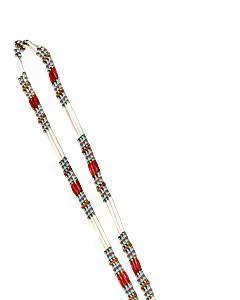
Li Ha
says:For those of us who do not meet the requirements, we need to be recognized as having some Native ancestry in us.
Although my Native ancestors are long gone, I still have their DNA in me. I still look like them. I still feel their presence in me.
I recognize that I am not Native. I also recognize that part of me carries my Native ancestors.
Sandy Jenne
says:I have always respected and wanted to learn and enjoy Native American culture. I am not of native descent, but enjoy teaching others about your culture and to create understanding among peoples as a teacher. I love the pow wows, jewelry, dancing, ar5 and food. These articles are wonderful, informative and well done. I am disabled in a wheelchair now so observing through your articles are wonderful! Thank you.
Alvin
says:Like many, I always ran into roadblocks because my grandmother cut ties with the tribe and never saw why we would want anything to do with them. My mother always felt the same way. My grandmother received oil royalties from headrights but that’s based on tribal land not blood. Some tribes are very restrictive on membership, in the case of the one I’m descended from, it has to do with oil money.
I know this article is correct, and have debated many who claim it’s “easy” to reclaim your heritage.
What’s maddening, though, is that any other ethnicity you aren’t required to PROVE your connection. Only Native American. Personally I’m not so interested in actual voting tribal membership, as much as simply being able to say “I’m of XYA lineage” without people trying to say I’m a faker.
DeeAnne Hubbard
says:I want to thank Paul for all the work he put into making the virtual Powwow of Nations a success.
John Garza aka Juan Enrique Garza.
says:I am from mexican heritage, my grandmother was Martinez, northernMexico. My grandfather was mexican last name Delgado. you know Delgado means thin person. I am just curious about native cultures which to me is sacred.
Thank you very much hope my words do not insult anybody .
John a Goode
says:Thanks for the article about requirements….to our ancestors…..I shall continue I am mongoloid
DeeAnne Hubbard
says:I want to thank Paul for all the work he put into making the virtual Powwow of Nations a success.
Colleen Holbrook
says:My moms side is Cherokee/Choctaw. I have info showing lineage back atleast 10 generations. I always thought they would look at me as white until I met a Sioux gentleman. I explained my ancestors and he told me I am not white. I am native Indian. My aunt says the same thing. That day it made me feel whole for the first time in my life. Just wanted to share with you!
debra johnson
says:i do not want any money or benefits from my tribal affiliation. it took me and my cousins many years to find out who our ancestress was and which tribe because she was sent to a boarding school at a very young age. finding all the information was very expensive and it is hard to get if you don’t have the money to go and gather the information. we all knew we were from native ancestry and the family was so proud of that. the only thing any of us ever wanted was to know where we came from. and to be able to feel free to claim our ancestry. that is the main reason others want to know. a sense of pride . and then to be able to learn our ancestral ways. and languages. many of us are scattered across the country with no access to other tribal members to teach us. my heart swells with pride at my ancestry. it is true im not full blooded or even a 1/4 blood. but which part of my body i native? with me it is my heart. and nobody can take that part away from me. the creator made me what i am. and i take great pride in that as do my other cousins now that we know the truth. i feel it is wrong that the gov’t has the right to take away my heritage. and that members of my tribe can be so derogatory towards me because i don’t have a card. my heart is not made of paper , it is made by the creator .
Janine King(Alice Kramer=Grandmother)
says:I identify with you as most of my life I have searched for information on my family. My Cherokee grandmother died @ an early age & county officials came into her home & took all the younger children…placing them in white homes. The older children hid & with their father & grandfather, stole their brothers & sisters back & left the state(arrest warrants on father & grandfather)destroying records to avoid paper trail. My mother was terrified that the state would come & take me when she was dying of cancer & I was under age. It has been so hard to find records but I have a family Bible & dates from grave stones. Would so much like to have my card before I die. I am 73. Blessings to you, for you gave me courage to tell my story.
Douglas Whiteraven
says:Another issue in proving yourself is that because of assimilation many native people had to burn or destroy any identifying heirlooms and paperwork. Not to mention that most governmental records like census listed native people as either “non-white freedmen, black, and in some cases Hispanic”. Therefore it makes the direct connection almost impossible to prove.
Dennis Hill
says:Hello! Just wanted to thank you for the information on tribal membership. I have several different tribal blood. My mother was of apache decent my farther was of Cherokee decent. So I wouldn’t know which one to even try to apply for membership. Not to mention that I’m also Irish and African American. So I see that I would have a long road ahead of me. Once again Thanks for the info.
Benjamin Raven
says:I fall under the category of “No other ethnic community in the US is required to have a certificate that proves their lineage.” I do not want a heath care or check benefit. I do not wish to live on a designated reservation. I have a real problem of having to prove my Cherokee lineage to a government who historically all but wiped out my ancestors. I feel no need to prove myself to them or need their approval. I am proud of my heritage and practice and honor it all that I can. I participate in educating people through my presentations at Pow-Wows and other places. My grandparents on my mother’s side were Cherokee as well as my great grandfather on my father’s side. Neither of them practiced Cherokee beliefs. They were poor sharecroppers and being Cherokee was not important to them. Feeding their children was most important to them. I learned many primitive skills on my own and through other teachers. I am Cherokee in heart which is where I believe it counts. I understand there are a lot of New Age, sheisters and wannabes out there and understand the need on some level of needing to prove heritage (If I hear “My grandmother was a full blooded Cherokee princess” one more time I will scream! LOL) but I will continue living the life as best I can in a modern world and that is good enough for me…and most Native Americans I hang out with.
VELMA GAINES
says:MY ANCESTORS WAS ALSO CHEROKEE,I CAN I GET STARTED FINDING THEM/THANKS
Floyd Ballinger, ChaBaShig
says:Why do they want to be part of us now???
Casinos????
I understand .. the bias created a mess for our people in displacement..boarding schools..some never came home again..they were taught to be ashamed as native people!! That was just one way to kill the Indian!! My heart bleeds for the lost Natives my brothers and sisters who want to make it back home through all these white man obstacles!! Endure!! Call on your inner Warrior!!
sumner ferris
says:i understand as well. And FEDERAL recognition is a fraud as well. White government fully recognized native people when hunting them. Placing a bounty on them . Scalps as proof of the kill and to deny them passage to to the beyond . The FULLY recognize native when it comes to abuse and denial . But not as humans. Natives are the ONLY peoples on the planet THAT NEED FEDERAL “RECOGNITION ” Sadly . And are required to prove their ancestry which was too often unrecorded or canceled . Native before the white invasion did not need documents to “prove” their heritage. It was recorded in spoken language . Documentation is yet another form of culture cancelation . The premise being one cannot be unless written document say so. In white culture one cannot be accepted as who they are without a BIRTH CERTIFICATE . And cannot be deceased without proof of demise (death certificate).
Two Hawks
says:Like the Island of lost and unwanted toys many of us are on the Island of lost or unwanted Indians…
Lost
says:I feel you 100%. I was adopted out of foster care (clear across the country from the state I was born in). Had no idea I was native. Adopted parents said it was easier to say I was Mexican for adoption purposes. Took a DNA 2 years ago and it said 35% native. I have no family records, biological father is unknown. So here I sit- lost again.
I do however keep my kids involved in their tribe (through their dad/ my husband). I never want them to feel that sense of loss. Hang in there.
H.R. Roberts
says:I’m adopted. I was born out of wedlock to a full German-ethnic mother and a half-blood Ho-Chunk(Ho-Çhak?) father. Both were university students at my conception/birth. My birthmother’s parents forced her to give me up at birth. My birthfather never acknowledged me as his progeny.
I only know these things because a family friend, who worked as a welfate fraud investigator in the county of my birth was able to look into my sealed adoption records; quite illegally I might add; and got the names and last known locations, etc. My birthmother had already died and my birthfather assumed that I was contacting him in a bad faith manner, very far from the truth. I was devastated by his assumptions and attitude towards me.
I was 22yrs old at the time.
With no physical or anecdotal proof of my heritage, after contacting tribal elders, I was told I could never be accepted.
I am 54yrs old now, with adult children and have grandchildren. The 1/8 of my children’s and the 1/16 of my grandchildren’s native ancestry wouldn’t be accepted anyway.
I am a proud, if sad, Splitfeather.
sumner ferris
says:i am in support of you brother
sumner ferris
says:true and created by whites . Whites always knew there was inter-marriage . And that those inter-marriages would create alliances . The blood quantom is a way to water down such . NO group of people are entirely FULL BLOOD . Especially white europeans who foisted this premise on native peoples. In my case ,a distant ancestor or two married into a tribe ( I believe Nipmuck) . That ancestor was black. That family line still exists today. My grandfather was Irish and his wife Mulatto . As her ancestors had married into native tribes. There was little reason for them to marry whites .Whites had destroyed their families in part by selling off family members. As they did with native peoples. and blood quantum is a fraud to weaken and eventually kill off natives family roots . The fraud of purity of race . With animals inbreeded is a disaster and weakens the breed. After 300 years of demeaning natives ,there is little to no advantage to claiming native ancestry as the premise of blood quantum suggests .